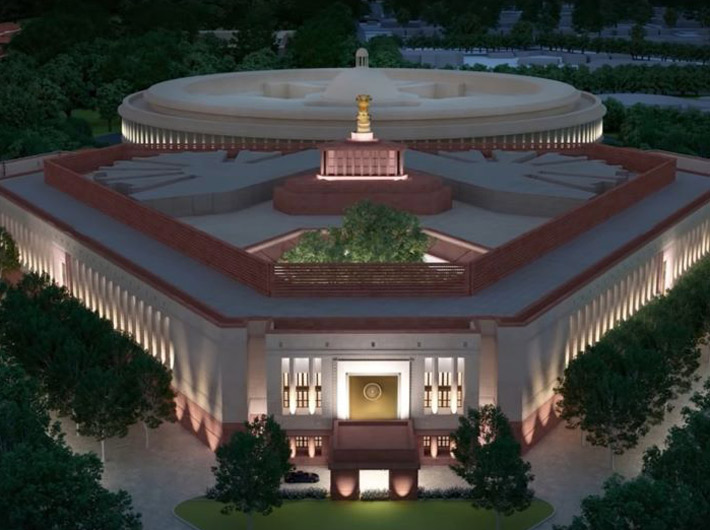An executive-dominated legislative culture that leaves little room for individual initiative and deliberative law-making
As parliament is in the monsoon session, it is time to look at a familiar pattern: The persistent neglect of Private Member’s Bills (PMBs). Of the 82 bills listed for discussion during the Budget Session, not a single one was taken up for debate on any Friday, the day on which PMBs are taken up. This is clearly more than a scheduling failure; but does it reflect a deeper erosion of democratic norms and the silencing of one of the few remaining tools available to backbench MPs to get their voices heard?
PMBs are meant to be parliament’s pressure valve—a space for individual MPs to bring forward issues that often go unaddressed due to governmental legislative priorities. Debated on Fridays by convention, PMBs offer a platform for innovative ideas, democratic dissent, and represent the MP’s and/or her constituent’s areas of concern/interest.
Since Independence, only 14 Private Members’ Bills have been passed by both houses of parliament and received presidential assent. Notably, no PMB has been approved by both Houses since 1970. During the 17th Lok Sabha (2019–2024), a total of 729 PMBs were introduced in the Lok Sabha and 705 in the Rajya Sabha. However, only two PMBs were discussed in the Lok Sabha and 14 in the Rajya Sabha. In the 18th Lok Sabha (as of May 2025), 64 PMBs have been introduced in the Lok Sabha, but none have been discussed. In the Rajya Sabha during the same period, 49 out of 82 introduced PMBs were admitted, with only one being discussed. As the above figures show, the trend is party-agnostic.
The question which arises, therefore, is whether centralisation of legislative power is undermining parliament’s role as a deliberative body. With the anti-defection law curbing other forms of dissent, PMBs are among the last remaining tools through which MPs can independently raise important issues. Their neglect surely signals that the legislature has become submissive to the executive over the past 50 years.
A common criticism is that PMBs have, over the years, deteriorated in quality, often being hastily drafted or poorly conceptualised. Critics argue that many PMBs are not thoroughly thought through and are introduced more for symbolic or political signalling than for legislative impact. For instance, bills like the Population Control Bill or the Uniform Civil Code Bill have been criticised for lacking legal robustness or wide stakeholder consultation.
This critique must be acknowledged. However, even if quality concerns are valid in some cases, they are not enough to fully explain the dismal success rate of PMBs. The structural marginalisation of PMBs—reflected in the limited time allotted for discussion, low prioritisation by the government, and a general lack of follow-up—suggests a deeper malaise: an executive-dominated legislative culture that leaves little room for individual initiative and deliberative law-making.
For women backbenchers, the implications of this trend are especially stark. With only around 15% representation, women are often underrepresented in leadership roles and parliamentary committees. PMBs have offered them a rare avenue to bring issues like menstrual hygiene, workplace harassment, gig worker rights, and digital safety for girls to the floor. Even if these bills don’t pass, they create awareness and institutional memory. Shelving them without discussion amounts to erasing both the issues and the women who bring them forward. Worse, many of these bills are rooted in real voter concerns—from mental health and elderly care to climate resilience and transgender rights. When parliament doesn’t even discuss them, it sends a message that citizen voices—especially those represented by women—don’t really matter.
To restore the relevance of PMBs, several reforms are urgently needed. First, PMB Fridays should be protected by amending the Rules of Procedure to ensure that these sessions aren’t casually overridden by government business. A bipartisan committee could be tasked with screening and prioritising high-impact or constitutional PMBs for structured discussion. Parties must also encourage co-sponsorship across benches, especially for social legislation. India could even borrow the UK’s Ten-Minute Rule model to give MPs a short platform to present bills even without a full debate. Extending parliament’s sitting hours to accommodate member-led initiatives is another practical option. These reforms would not just improve legislative quality—they would reinvigorate the democratic spirit.
The [now former] vice president of India recently called PMBs a “gold mine” of legislative creativity. but like any mine left untapped, it produces no value. For women MPs, PMBs are more than symbolic—they are platforms for voice, legitimacy, and leadership. As India celebrates increasing female representation in Parliament, it must ask the harder question: Are we truly listening? Because representation without voice is no representation at all.
Jyoti is a Fellow at Pahle India Foundation.


